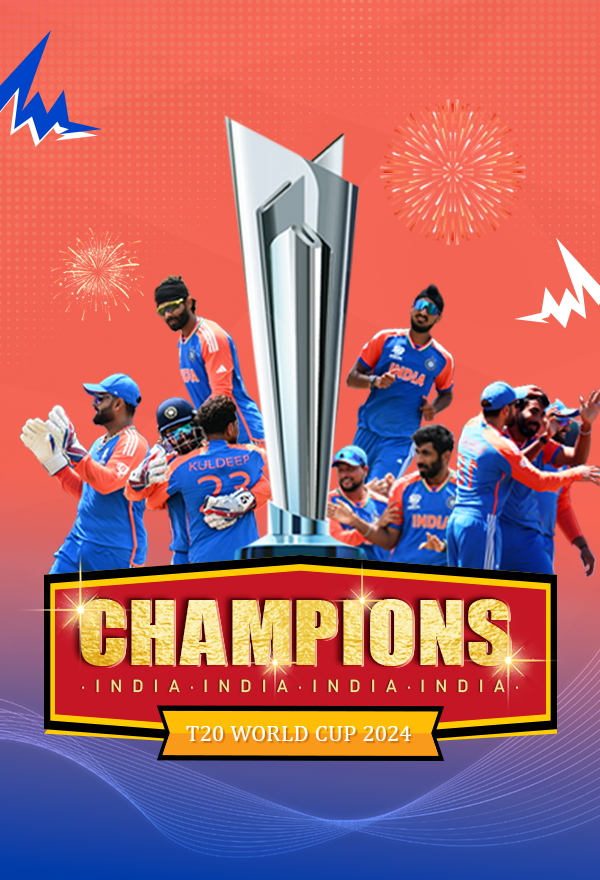
ICC to introduce stop clock rule on permanent basis in white-ball cricket
Dharmendra2 kumar
getcricketnews|15-03-2024
The International Cricket Council (ICC) is all set to implement the stop clock rule which is under trial from December 2023 in white-ball cricket to stop unnecessary time wasting.
ICC, the apex body of cricket is currently trailing a 60-second stop clock rule similar to tennis, where the fielding team needs to restart the play immediately after the end of each over. According to sources, the rule will be implemented in both T20Is and ODIs and its implementation could be seen during the upcoming T20 World Cup in the West Indies and the USA. ICC to implement stop clock rule Similar to tennis, where 30 seconds are given for the serving player to restart the play, the ICC also tends to reduce unnecessary time wasted during cricket matches, especially during white-ball cricket. The rule will see the fielding side given 60 seconds to change ends after the end of the over but will be monitored by the on-field umpire and the third umpire if necessary. While the stop clock is set to start immediately after the end of the over, umpires reserve the right to penalise a team depending on several factors like DRS calls or any unforeseen circumstances.What will be the penalty?
According to sources, the umpires will give two warnings to the fielding side for violation of the stop clock rule before penalising the side. The penalty will be five runs for every offense committed after the first two warnings. In case of drinks break and DRS calls on the last ball of the over, the on-field umpires reserve rights to when to start the stop clock. T20 World Cup 2024: ICC to release additional tickets for 13 matches on March 19 A similar rule is also in place for the batting side, where a batter has to enter the field within 90 seconds after the fall of the previous wicket. However, the batter could be given out only if the bowling team decides to appeal. During the ODI World Cup in India in October-November 2023, Angelo Matthews became the first player to be timed out when Bangladesh decided to appeal when he arrived late in the middle. The stop clock rule was initially trialed by the ICC in December 2023. The trial period is supposed to end in April but in the meanwhile, the ICC and its cricket committee are believed to have found merit in making the rule permanent. It will now be a universal rule for every ICC whiteball game.However, the batter could be given out only if the bowling team decides to appeal. During the ODI World Cup in India in October-November 2023, Angelo Matthews became the first player to be timed out when Bangladesh decided to appeal when he arrived late in the middle. The stop clock rule was initially trialed by the ICC in December 2023. The trial period is supposed to end in April but in the meanwhile, the ICC and its cricket committee are believed to have found merit in making the rule permanent. It will now be a universal rule for every ICC whiteball game.Latest Newsmore

Yashasvi Jaiswal Health Update: Yashasvi Jaiswal suffered from this disease, big news came from the hospital
17-Dec-2025 • Sanjeev Kumar

Carey Century, Khawaja Resistance Power Australia to Strong Day One at Adelaide
17-Dec-2025 • CricketnMore

Varun Chakravarthy,Tilak Varma Prosper In ICC Men's T20I Player Rankings
17-Dec-2025 • CricketnMore

Ex-India Coach Pinpoints Shubman Gill’s Key Weakness Ahead Of IND vs SA 4th T20I
17-Dec-2025 • PTI

Ashes 2025-26: Australia vs England Highlights & Review – 3rd Test, Day 1
17-Dec-2025 • CricTracker






